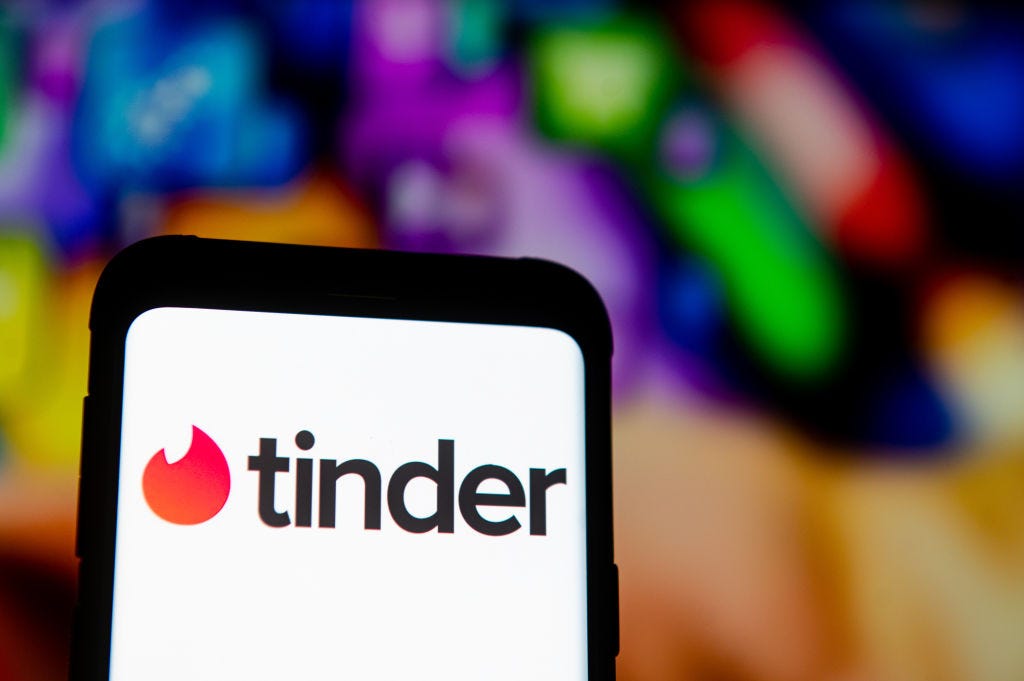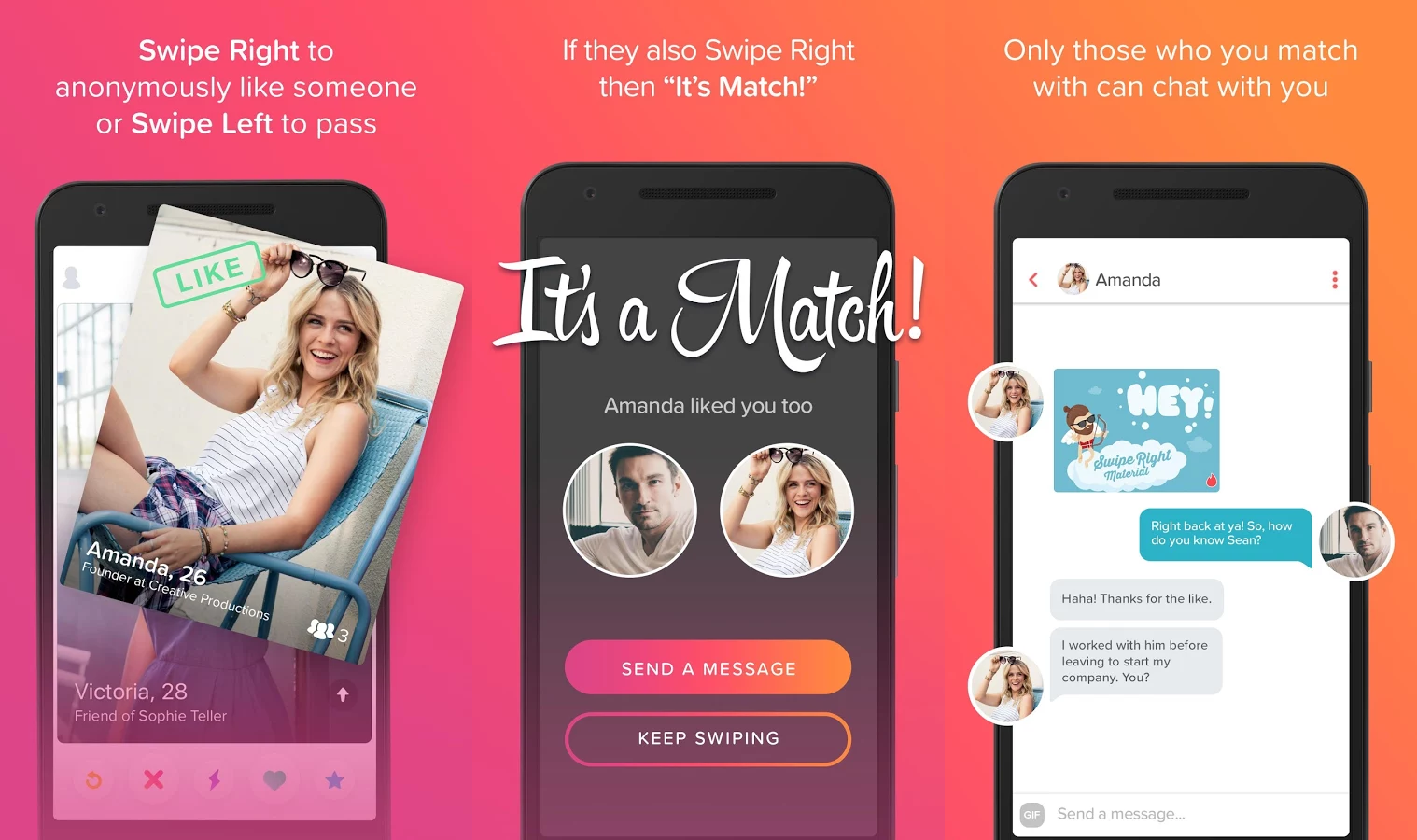Dating App No Photos
- Dating App No Photos Or Photo
- Dating App No Photos Showing
- Dating App No Photos Available
- Dating App No Photos Allowed
Related
A person’s smiling photo pops up on your screen. Swipe right for yes and left for no. Another picture emerges. Swipe. Then another. Swipe.
Dating apps are full of pros and cons, but two apps in particular are trying to help you find love without any pictures whatsoever. That’s right - personality only! The new app Appetence does not. But if you want to see photos and communicate with one of the singles who is a daily match, you’ll have to become a member of this dating app. R r eHarmony makes it easy to get to know people through a reputable online dating platform, but it’s not one of the dating sites for free, no membership needed. That’s how I decided not to use a photo just yet. Read: 9 sites you can use to get yourself a date Why I didn’t use a photo. No matter which way you look at it, there is still a stigma on using dating apps and sites to find a relationship. I knew that I would find people I knew. The goal of Lovetastic is that other users like you without a photo at first impression. This is possible because Lovetastic profiles contain a lot of exciting information. So even without a photo. This Dating App Has No Photos, So You Can Just Text First This Dating App Is Purely Text Based, So You Can Get to Know Someone Without Seeing Their Photo March 28, 2020 by Deniz Sahinturk Image.
One second, if that, is all that users give to deciding whether or not that image appeals to them. This is how “hot-or-not” dating apps have tended to work: browse through profiles and make snap judgments based on appearances.
Christian Rudder, co-founder and president of OkCupid—a site with 15 million users since it launched in 2004—says that the site’s users “don’t really look at the rest of the profile that much.”
But what if they were forced to? The founders of a new app called Twine are hoping to counter the superficiality of other dating apps by blurring out users’ photos. The free app pairs two users based on age, location and common interests. The two can then start a conversation and, if all goes well, eventually choose to “reveal themselves” to the other person and un-blur their photo.
“Other dating apps are superficial: you’re judging the person too quickly based on looks and not getting into a conversation,” says Rohit Signal, one of the founders of Twine. “That superficial matching is not resulting in long-term relationships.”
MORE:Online Dating: Women Want Younger Men

Even so, departing from superficial assessments may be a hard sell when it comes to match-making apps; after all, first impressions, even in person, are almost entirely based on quick assessments of attractiveness. Justin Mateen, co-founder and CMO of the hot-or-not app Tinder says that his app “emulates the real world. The first thing that you notice about someone is their physical appearance.” Mateen adds that Tinder has led to at least 50 marriage proposals.
And even users of sites like Match.com or JDate—more commitment-heavy dating sites requiring higher investments of both time and money—find that attractiveness plays a key role in finding a date. New York media strategist Amy Webb proved that point when she described in her book how she gamed the online dating system by adjusting physical features (such as whether her hair was curly or straight) and narrowing down to very specific features in a mate (physical and emotional) to find a husband; soon after employing her new methods, she was married. And Jessica Carbino, a PhD candidate at UCLA studying online dating, found that 81% of participants lied in their online dating profiles, most commonly about weight, height and age, in order to attract mates.
Relying on attractiveness to evaluate strangers may be inherent to our biology. “It’s an innate thing that people do,” dating expert Carbino says. And that may not be such a bad thing. “In the end, a physical connection is essential for any relationship.”
No surprise there. But where is all this superficial evaluation leading, and how does it affect our relationships?

(MORE:Apps to Help You Get Over Your Breakup)
For one, it may be setting people up to be deceived. Some are photoshopping pictures or choosing old or blurry photos for their profiles. Ultimately, of course, these illusions aren’t sustainable, but that doesn’t seem to deter users: Aviv Godot, CEO of photoshopping app Pixtr, says that many of his customers have been demanding direct links to apps like Tinder.
And it’s not just users who are trying to dupe other users. In an effort to capitalize on people’s vanity, OkCupid reportedly sends out emails to users saying they’re among the hottest or most desired singles on the site. “We don’t send this email to everyone on OkCupid. Go ask an ugly friend and see,” the message reads. But, according to this week’s Kernel Magazine, the site actually does send that email not just to an elite few chosen by the company’s secret hotness algorithm (as the email implies) but to most of their user base. Rudder confirmed that about half the site’s users receive the email in an effort to keep people interested in the site.
Dating App No Photos Or Photo
Putting such an emphasis on superficial features may also lead to worse relationships. Research has found, for example, that simply having many potential dates from which to choose—think of all that swiping through photos—leads to shallower and less meaningful decisions. If the options are plentiful, then each choice doesn’t carry as much weight, since there may be another candidate ready to replace rejected ones. In other words, you shouldn’t expect to find your true love (or any type of connection, for that matter) with a few flicks through those photos on your phone.
Dating App No Photos Showing
Then there’s the fact that many dating apps that work on the hot-or-not principle pair people based on crowd-sourced attractiveness ratings, rather than an individual user’s assessment of whether a potential date is attractive or not. At OKCupid, for example, Rudder says users are matched to others who are rated by other users in similar categories of attractiveness. “We try to find someone for every single person, from the bottom of the pile to the top,” he says. “We try to show them the people who are most likely to respond. And sometimes that means if you’re a five, we’re going to show you fives and sixes — not nines and tens — because they’re more likely to write back to you.”
Beauty, according to this system, is not in the eye of the beholder, but in the eyes of thousands of beholders. Not only do these sites ignore differing, subjective notions of physical attractiveness, they even de-prioritize shared interests, intellectual chemistry and other romantic factors beyond a chiseled jawline and six pack abs.
Dating App No Photos Available
MORE:What Everyone’s Getting Wrong About the Ivy League Hookup Culture
But there may be hope yet, even for apparently shallow singles. A recent study found that while most people cite attractiveness as essential to a potential connection when looking at profiles on dating sites, when they meet in person, priorities change: physical attractiveness isn’t more likely to lead to successful dates for those who say it is an important factor than for those who say it isn’t. Other characteristics actually turn out to be more important.
Dating App No Photos Allowed
That’s what Twine’s founders are counting on—being able to cut through the initial beauty contest and give users the “in-person” date experience online, so singles can focus on deeper ways of connecting than by looks alone.
Oliver Romero, a dating app user living in New York, says he likes the idea of a dating app with no pictures that forces you to spend more time looking at profiles. “If you look at an app like Tinder, your judgment is based solely on looks—not a profile, not what you might overhear someone talking about at a bar. It devalues the experience.”
But the numbers don’t lie. So far, Twine has only about 100,000 users a month after launching. Tinder, by contrast, logged 20,000 downloads per day when it came out last winter. And Rudder knows from experience that looks really do matter. “We turned off the photos on OkCupid for a day—just to see what would happen,” he says. “We called it ‘Love Is Blind.’ People basically s*** their pants. We got so much hate mail. They didn’t want any of it.”
Even if app users recognize the superficiality of online dating, it seems that love may not be entirely blind after all.